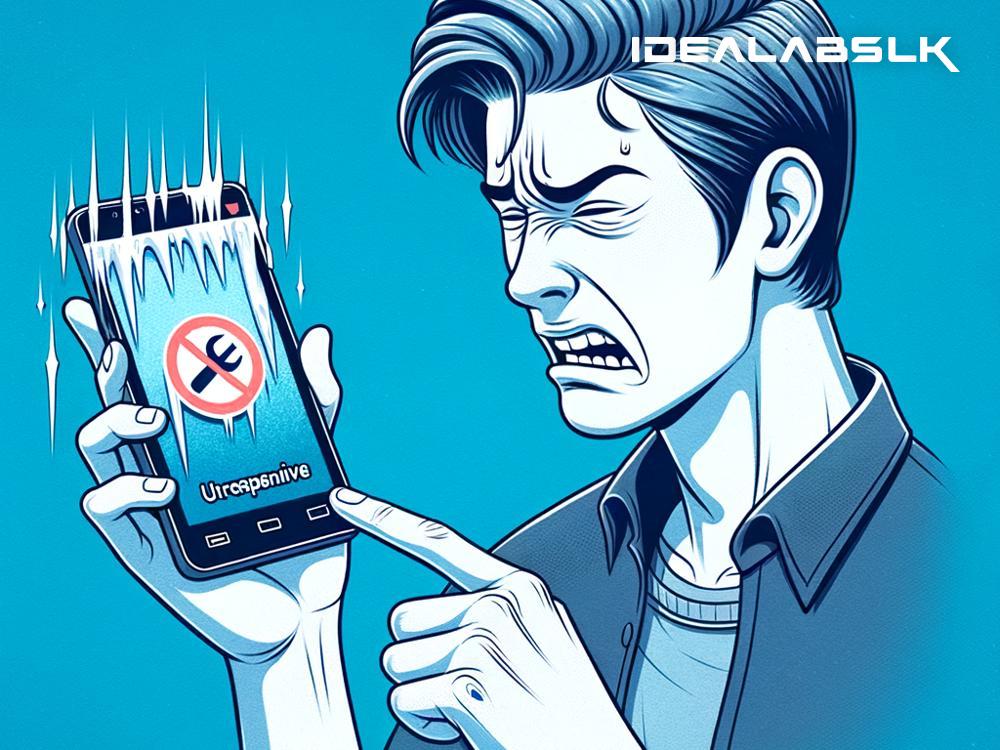Why Your Smartphone Doesn’t Respond to Touch Input: A Guide to Untangling the Mystery
Have you ever found yourself repeatedly tapping on your smartphone screen with no response, wondering if it suddenly developed a mind of its own? It's a frustrating experience, especially when you're trying to make an urgent call, respond to an important message, or simply scroll through your social media feed. Understanding why your smartphone isn't responding to touch input can help you troubleshoot the problem and find a solution. So, let's dive into the possible reasons behind this maddening issue.
1. Dirty or Damaged Screen
The simplest explanation could be that your screen is dirty. Oil, dust, and dirt from your fingers can accumulate on the screen, making it less responsive. Similarly, if your screen is scratched or cracked, it can interfere with the touch sensitivity. In such cases, gently cleaning your screen with a soft, lint-free cloth might just do the trick.
2. Screen Protector Issues
Screen protectors are great for keeping your phone's screen safe but sometimes, they can cause more harm than good. If the protector is too thick or not properly applied, it can reduce the touchscreen's responsiveness. Try removing the protector to see if that solves the problem.
3. Software Glitches
Smartphones are complex devices run by software that can sometimes go awry. A software glitch or a bug in the system can cause the screen to become unresponsive. This could be due to a recent update, an app you've downloaded, or just a random hiccup in the system. Restarting your phone can often resolve these issues by refreshing the system.
4. Extreme Temperatures
Did you know that your phone hates extreme temperatures just as much as you do? If it’s too cold, the screen might not register your touch, and if it’s too hot, the device might prevent itself from working to cool down. Keeping your phone in a moderate and stable environment can help maintain its touch sensitivity.
5. Overworked Processor
Just like humans, phones get tired too. If you have too many apps running in the background, it can overload the processor, making the phone sluggish and possibly affecting the touchscreen's responsiveness. Closing some apps or performing a soft reset can free up the processor and bring back the responsiveness.
6. Hardware Issues
Sometimes, the problem lies deep within the hardware. The touchscreen relies on a network of sensors to work, and if these sensors are damaged, the screen won't respond correctly. This could be due to a drop, water damage, or just wear and tear over time. If you suspect hardware damage, it might be time to visit a professional for repairs.
7. Outdated Software
Operating systems and apps are regularly updated for a reason. These updates not only bring new features but also fix known bugs and improve performance. If your phone’s software is outdated, it might cause compatibility issues and affect the touchscreen. Make sure your device is up to date with the latest software updates.
8. Too Much Screen Time
Lastly, believe it or not, using your phone for extended periods without giving it a break can lead to temporary unresponsiveness. The touchscreen can get overwhelmed, just like the processor. Giving your device a little rest can sometimes be the best solution.
What To Do Next?
- Clean Your Screen: Use a soft cloth to gently remove any dirt or grease.
- Restart Your Phone: This can clear minor software glitches.
- Remove the Screen Protector: If you have one, try removing it to see if it makes a difference.
- Update Your Device: Ensure your device's software is up to date.
- Visit a Professional: If none of the above solutions work, it's best to consult with a professional for a thorough diagnosis and repair.
In conclusion, an unresponsive smartphone screen can stem from various issues, ranging from simple to complex. Identifying the root cause is the first step towards solving the problem. Whether it’s a quick clean-up, a system reboot, or a professional repair, there’s always a way to bring back the responsiveness we rely on so heavily in our daily lives. Remember, your smartphone is an extension of yourself – treat it well, and it will do the same for you.

